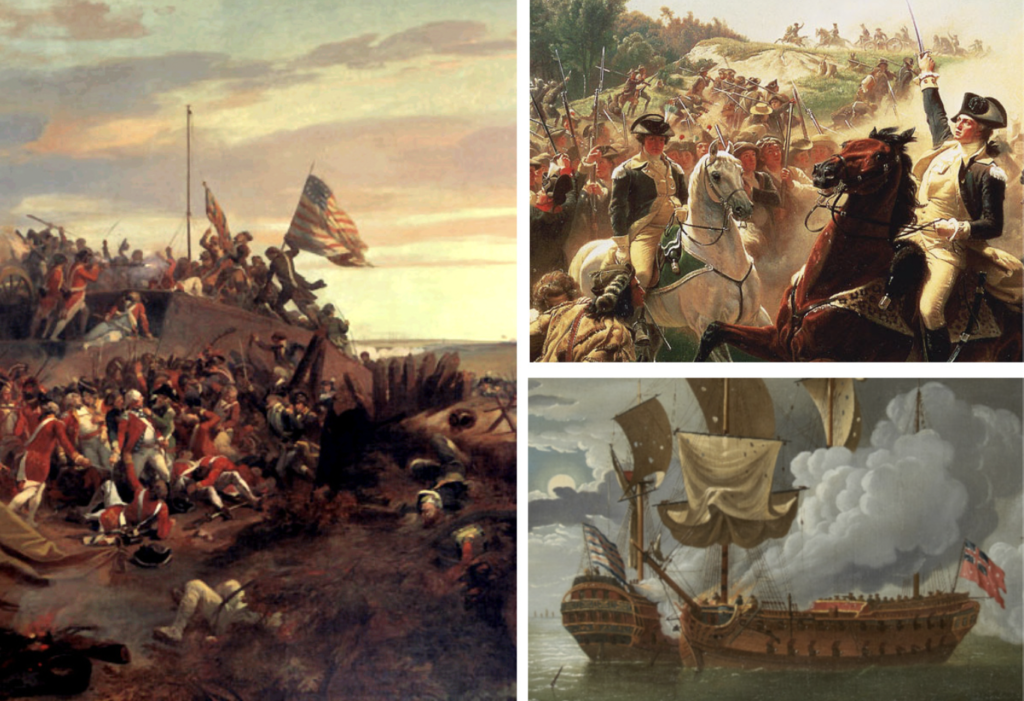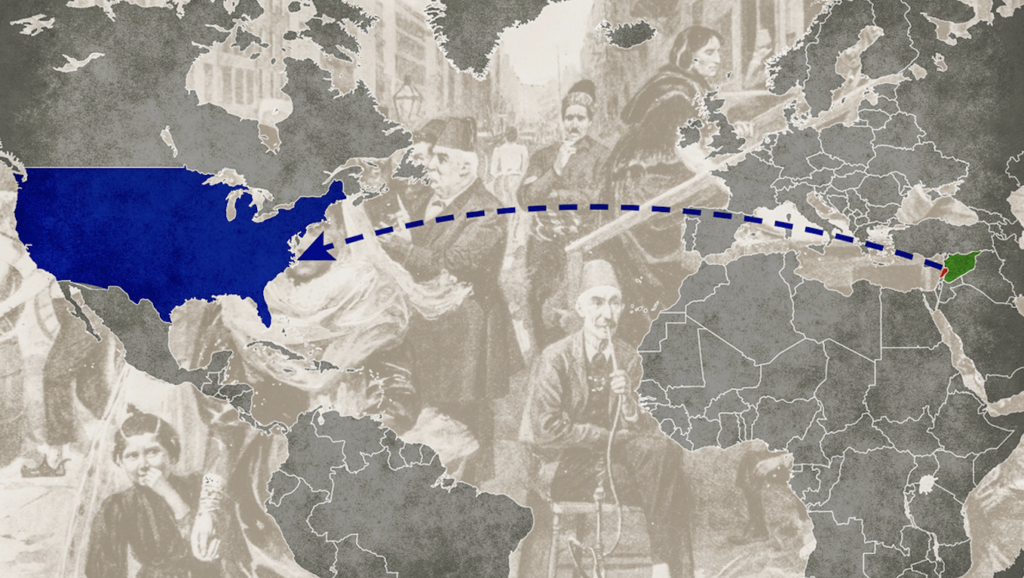Arab Americans in the Revolutionary War

By: Adam Abdel-Qader / Arab America Contributing Writer
The American Revolutionary War, which took place between 1775 and 1783, was one of the most significant historical events in world history that eventually led to the formation of the United States. The war is famously associated with founding fathers and iconic figures such as George Washington, Thomas Jefferson, Benjamin Franklin, and many more. But what remains unknown by many individuals are the two Arab American men who played significant roles during the conflict, army Private Nathan Badeen and Scout Joseph Benehaley.
Now you might be thinking, how did these Arab individuals get involved in the war that formed our nation, or how did they migrate from the Arab world to America at the time? In the face of unwarranted prosecution and subjugation by foreign governments, they courageously immigrated across the globe to find a new home to serve; that home was known as the thirteen colonies of America at the time.
Furthermore, the stories of these individuals not only showcase diversity among those who fought for independence but also illuminate immigrants’ valuable contributions to the United States throughout its rich and vast history.

Nathan Badeen:
Army Private Nathan Badeen became one of the earliest Arab Americans to join the Continental Army. Badeen hailed from a family of farmers and merchants originally from the Hauran area, better known now as Syria. Evidence suggests that French traders abducted him in Syria while he engaged with them around Latakia City.
During and after his journey to Canada with the French, it is believed that Badeen escaped or was forced off the ship by the French. After his abandonment, he went south into the thirteen colonies and arrived in the northernmost colonies near Massachusetts around the start of the Revolutionary War.
Nathan Goold, a librarian at the Main Historical Society, released a book in 1898 that included Edmund Phinney’s 18th Regiment’s full muster rolls. The regiment was formed in Cambridge, Massachusetts, as part of the new Continental Army and was critical in freeing Boston from Great Britain during the battle. According to the documents in the publication, acquired by the Library of Congress, Nathan Badeen willingly joined the Continental Army on January 1st, 1776. He bravely served his country until his death at Fort George on May 23rd of the same year. The details surrounding Badeen’s death and where he was buried remain a mystery to historians.
Joseph Benenhaley:
Joseph Benenhaley, sometimes known as Yusuf Ben Ali, was another Arab American who fought in the Revolutionary War. Records suggest that he was initially born around 1753 in Ottoman Turkey and arrived in America after fleeing Ottoman persecution as a refugee or, as some recall, had come as a “captive or member of a ship’s crew.”
Benenhaley immigrated to an area in Sumter County, South Carolina, shortly before hostility erupted between Britain and its colonies, coinciding with escalating tensions between settlers and Native American tribes influenced by British agents seeking support against the rebellious colonies. Given his extensive experience maneuvering through wilderness regions, General Sumter appointed him a scout after recognizing his specialized skills. General Sumter also gave him land to raise a family. Over the centuries, this South Carolina family spread out into an enclosed society of people from Turkish and Arab people, numbering up to several hundred people by the twentieth century.
Benenhaley played a critical part in the war as a scout for the South Carolina militia by supplying strategic intel on enemy whereabouts and activities. Given his abilities and the land General Sumter gave him, there is no doubt that his war efforts were of great use.
Conclusion:
Nathan Badeen and Joseph Benenhaley exhibited exceptional bravery and commitment to their new country during the Revolutionary War, exemplifying countless other immigrants who joined forces with native-born Americans in pursuit of independence from Britain and the rest of Europe.
Amin Nash, a researcher at the Arab American Civic Council in Anaheim, has stated there is slim to no documentation about the lives of Badeen and Benenhaley, as Arab immigrants back then usually abandoned their identities and ethnicity upon arriving in America. Nash exclaims, “‘That’s why we know so little because nobody took the time to record them as being from the Arab region, or as Middle Eastern, but more so as people who came from another land and they slowly became American.’”
Although Badeen and Benenhaley made noteworthy contributions to the war effort, their names have gradually faded into obscurity. Their accounts serve as a poignant reminder of the innumerable unrecognized champions who placed themselves in harm’s way for the sake of liberty during this significant historical feat. By paying tribute to their selflessness, Arab Americans pay homage to their heritage and acknowledgment of diversity and its impact on our nation’s great history.
Check out Arab America’s blog here!









